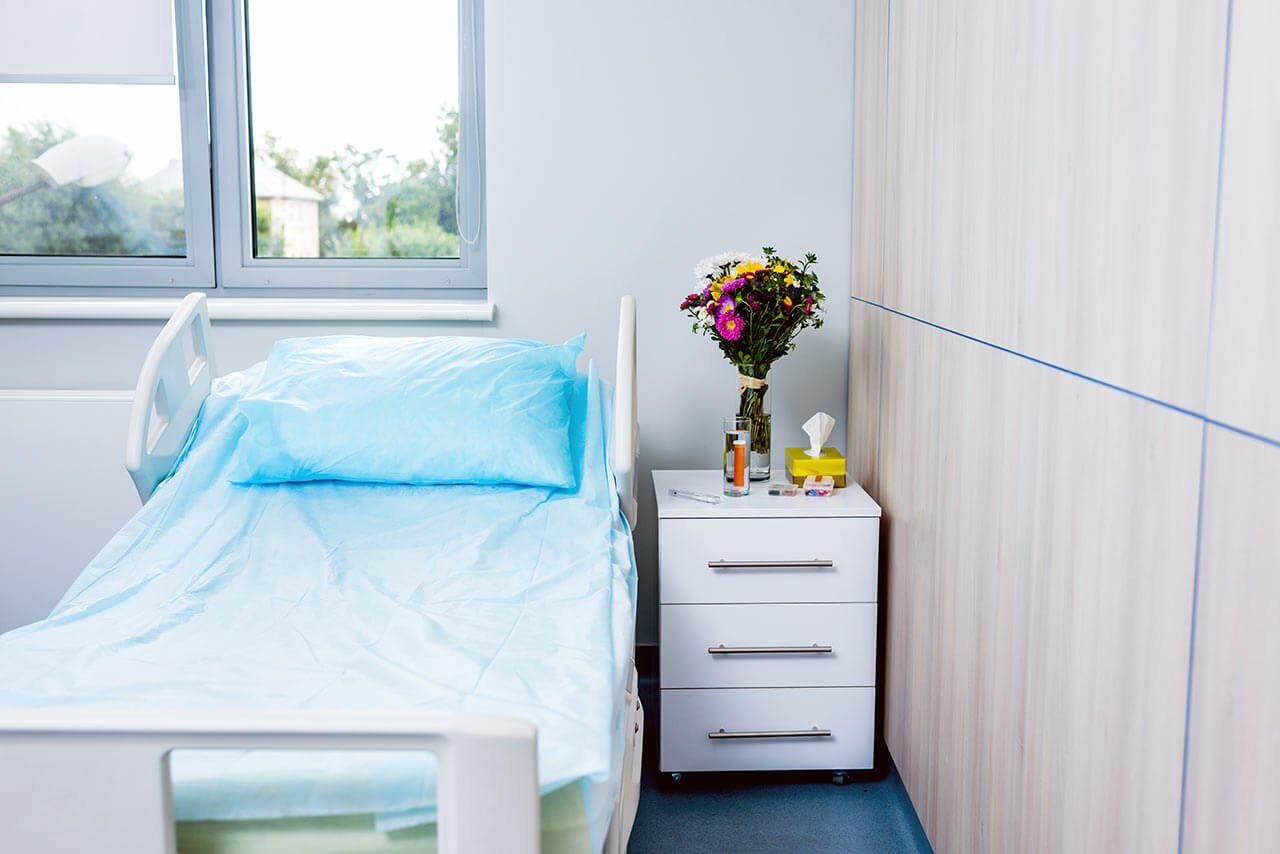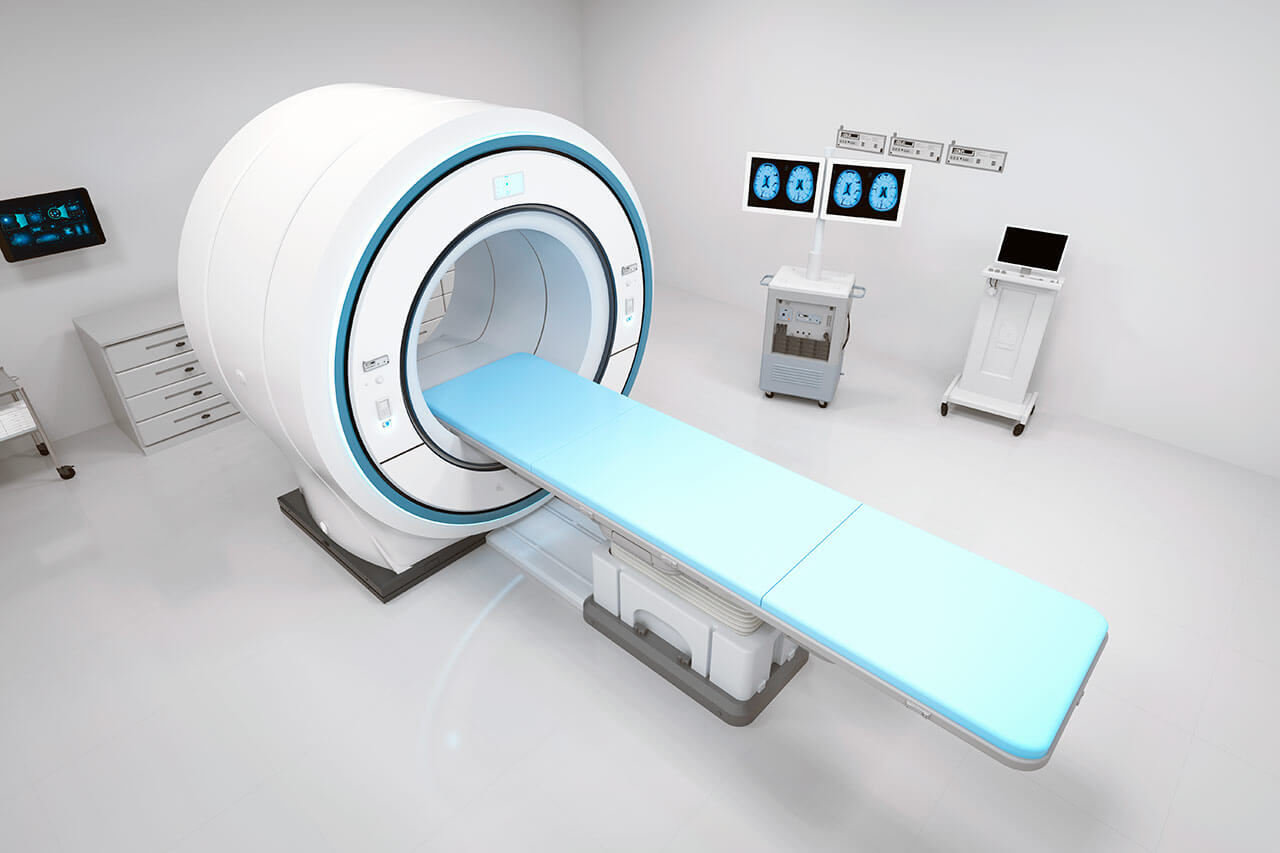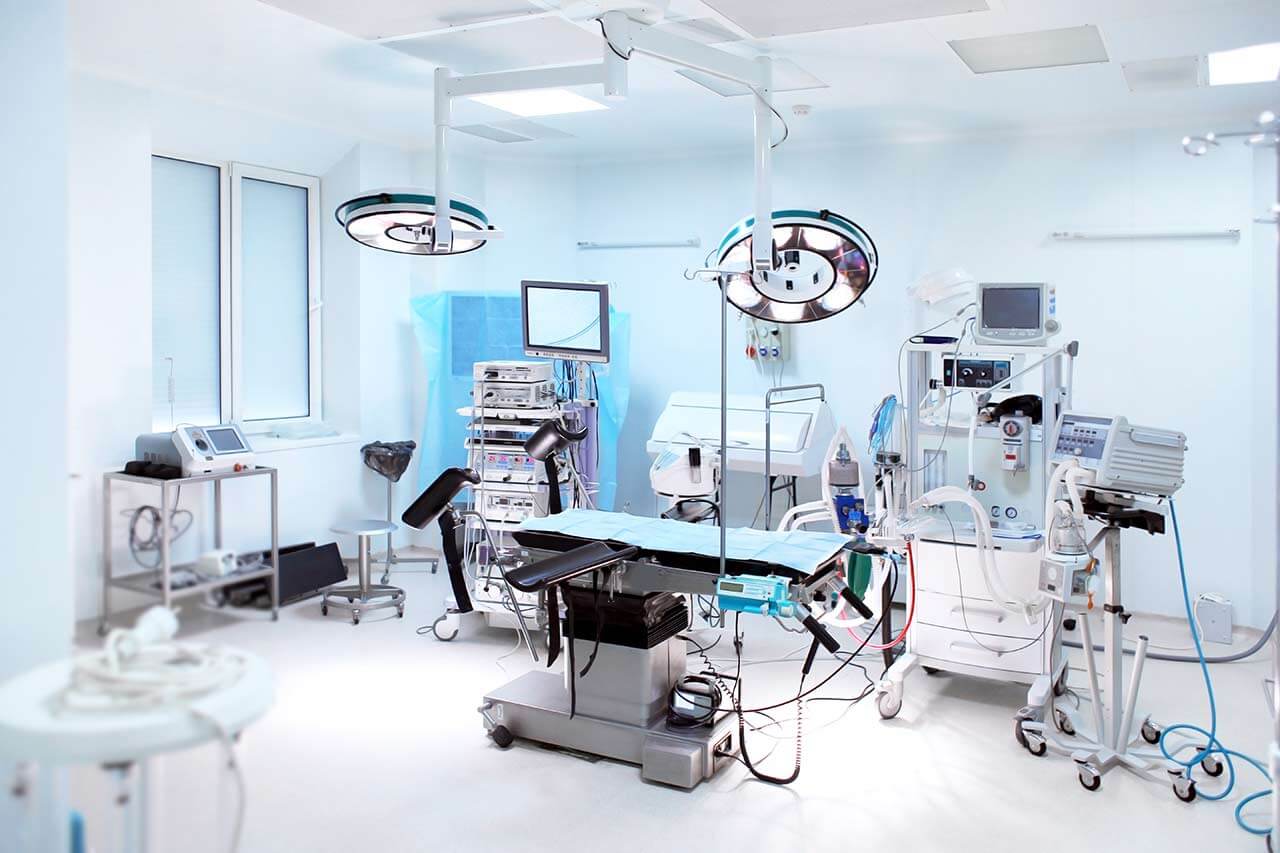
The program includes:
- Initial presentation in the clinic
- case history collection
- general clinical examination
- laboratory tests:
- complete blood count
- general urine analysis
- biochemical analysis of blood
- TSH-basal, fT3, fT4
- tumor markers
- indicators of inflammation
- indicators blood coagulation
- ultrasound
- CT/MRI scanners
- endosonography/ cholangigraphy
- gastroscopy with biopsy and ercp or pops
- stenting and bougienage
- symptomatic treatment
- cost of essential medicines
- nursing services
- stay in the hospital with full board
- full hospital accommodation
- elaboration further recommendations
Required documents
- Medical records
- MRI/CT scan (not older than 3 months)
- Biopsy results (if available)
Service
You may also book:
 BookingHealth Price from:
BookingHealth Price from:
About the department
The Department of Pulmonology, Internal Intensive Care, Infectology, Gastroenterology, Nephrology at the University Hospital Giessen UKGM offers the full range of diagnostic and therapeutic services in these areas. The department specializes in the treatment of diseases of the lungs and respiratory tract, kidney, gastrointestinal diseases, infectious diseases. The scope of tasks of the department’s doctors also includes all modern measures in the field of intensive care. The medical team of the department has at its disposal many latest examination methods and innovative therapeutic techniques. The Chief Physician of the department is Prof. Dr. med. Werner Seeger.
The department has the status of a certified Infectology Center (certification of the German Society of Infectology). It diagnoses and treats patients with all infectious diseases, including rare and extremely complex ones, around the clock. The specialists have special competence in the treatment of infectious diseases of the respiratory tract, tuberculosis, bone and soft tissue infections, urological and venereal infections, various types of hepatitis, HIV/AIDS, etc.
The therapeutic options in the field of pulmonology include the treatment of pathologies, such as bronchial asthma, chronic obstructive pulmonary disease, oncological diseases of the respiratory system, diseases from other clinical focuses affecting the lungs (for example, rheumatic systemic diseases, chronic inflammatory bowel diseases and others). To make an accurate diagnosis, the pulmonologists of the department use many modern examinations. These include pulmonary function testing with body plethysmography and blood gas analysis, nonspecific provocative tests, allergy tests, respiratory muscle function assessment, spiroergometry, right heart echocardiography (at rest and under conditions of hypoxia), screening of sleep-related breathing, x-ray diagnostics.
In the field of gastroenterology, the department treats all diseases of the gastrointestinal tract and liver, as well as performs various endoscopic procedures (for diagnostic and therapeutic purposes). The department performs more than 6,000 endoscopic examinations annually. In addition, within the framework of the specialized outpatient clinics, the doctors annually provide medical care to about 3,000 patients with diseases of the gastroenterological spectrum.
The nephrologists of the department specialize in medical services in the field of kidney transplantation. The department provides competent advice on the benefits and potential risks of kidney transplantation, preliminary examinations and voluntary donation consultations (including donation in case of blood type or HLA system incompatibilities).
The department’s range of medical services includes:
- Diagnostics and treatment of lung diseases
- Bronchial asthma and allergic respiratory diseases
- Nonspecific lung diseases
- Obstructive pulmonary diseases, including COPD, pulmonary emphysema
- Bronchiectasis
- Infectious lesions of the lungs and pleura
- Tuberculosis and mycobacteriosis
- Pleural effusion, pleural empyema
- Sarcoidosis and interstitial lung diseases, such as alveolitis and fibrosis
- Pneumoconiosis (silicosis, asbestosis)
- Bronchial, tracheal, lung, pleural and mediastinal tumors
- Pulmonary thromboembolism, pulmonary hypertension and other pulmonary vascular diseases
- Diseases from other clinical focuses affecting the lungs
- Rheumatic systemic diseases (for example, systemic lupus erythematosus, systemic scleroderma, rheumatoid arthritis)
- Chronic inflammatory bowel diseases
- Conditions after bone marrow transplantation
- Rare diseases (for example, Osler-Weber-Rendu syndrome, Fabry disease)
- Side effects of medicines
- Internal intensive care
- Diagnostics and treatment of kidney diseases (focus on preparation and follow-up after kidney transplantation)
- Diagnostics and treatment of infectious diseases
- Respiratory tract infections and tuberculosis
- Bone and soft tissue infections, urological and sexually transmitted infections
- Multidrug-resistant infections
- Viral hepatitis and other chronic viral infections
- HIV/AIDS
- Tropical infections
- Parasitic infections
- Diagnosis and treatment of diseases of the gastrointestinal tract, liver
- Endoscopic procedures
- Gastroscopy
- Video endoscopy, narrow-band imaging, Zoom endoscopy with biopsy
- Treatment of esophageal varicose veins (ligation, sclerotherapy, histoacryl injections)
- Restoration of patency of the gastrointestinal tract in case of stenosis (bougienage, stenting)
- Treatment of bleeding ulcers of the stomach and intestines (injections, clipping therapy, use of fibrin glue)
- Mucosectomy for dysplasia or early forms of cancer
- Polypectomy
- Argon plasma coagulation for bleeding tumors and portal hypertensive gastropathy
- Endosonography with the possibility of transmural puncture, installation of miniprobes
- Percutaneous endoscopic gastrostomy, placement of nutritional probes
- Small intestine examinations
- Capsule endoscopy
- Double balloon enteroscopy
- Colonoscopy
- Video endoscopy, narrow-band imaging, Zoom endoscopy with biopsy
- Polypectomy
- Dilation of benign and malignant stenosis
- Argon plasma coagulation for the treatment of stenotic or bleeding tumors
- Proctoscopy and rectoscopy
- Endoscopic retrograde cholangiopancreatography
- Video endoscopy with puncture and brush biopsy
- Endoscopic papillotomy of the bile duct and pancreatic duct sphincters
- Extraction of stones from the bile duct and pancreatic duct, mechanical lithotripsy
- Dilation of benign and malignant stenosis
- Installation of plastic and metal stents for stenosis
- Endosonography of the upper gastrointestinal tract and rectum
- Endosonography using radial and linear scanners and transmural puncture
- Miniprobe endosonography
- Functional testing of the gastrointestinal tract
- pH metry
- Esophageal manometry
- Gastroscopy
- Ultrasound diagnostics, including ultrasound-guided puncture and drainage
- Liver elastography
- Endoscopic procedures
- Other medical services
Curriculum vitae
Academic and Professional Career
- Since 2007 Director of the "Lung Development and Remodeling", Chair at the Max‐Planck Institute for Heart and Lung Research, W.G. Kerckhoff Institute, Bad Nauheim, Germany.
- Since 2006 Medical Executive Director of the University Hospital Giessen and Marburg (UKGM), Germany.
- Since 2000 Managing Director, Department of Internal Medicine, University Hospital Giessen, Germany.
- Since 1996 C4 Professorship for Internal Medicine/Pulmonology, Justus Liebig University Giessen, Germany.
- 1991 ‐ 1996 Head, Clinical Research Group "Respiratory Failure", Justus Liebig University Giessen, Germany.
- 1987 ‐ 1991 Assistant Professor of Internal Medicine, Justus Liebig University Giessen, Germany.
- 1987 Habilitation, Justus Liebig University Giessen, Germany.
- 1982 ‐ 1987 Internship and Residency, Department of Internal Medicine, University Hospital Giessen, Germany.
- 1980 PhD thesis defense, Justus Liebig University Giessen, Germany.
- 1979 ‐ 1982 Postdoctoral Fellow, Department of Laboratory Medicine and Pathological Biochemistry, Justus Liebig University Giessen, Germany.
- 1972 ‐ 1979 Study of Medicine at the University of Muenster and at the Justus Liebig University Giessen, Germany.
Functions in Scientific Societies and Committees (selected)
- Since 2010 Associate Editor, American Journal of Respiratory and Critical Care Medicine.
- Since 2009 Spokesman of the German Department Chairs of Internal Medicine.
- 2007 ‐ 2010 Chairman of the Medical Commission of the German Council of Science and Humanities.
- Since 2006 Member of the Health Research Council.
- 2005 ‐ 2006 President of the German Society of Internal Medicine.
- 2004 ‐ 2009 Vice President of the German Interdisciplinary Association of Critical Care and Emergency Medicine (DIVI).
- 2003 ‐ 2009 Member, German Council of Science and Humanities.
- 2002 ‐ 2009 Member, Senate Committee "Clinical Research", German Research Foundation (DFG).
- 2002 Conference Chairman, 6th Congress of the German Interdisciplinary Association of Critical Care and Emergency Medicine (DIVI).
- 2001 ‐ 2002 President, German Society for Pulmonary Medicine (DGP).
- 2000 ‐ 2003 Chairman, Study Section "Medicine", German Research Foundation (DFG).
- 1999 ‐ 2001 President, German Society for Internal Critical Care Medicine (DGIIN).
Awards and Honors
- 2014 Congress Chair Award of the European Respiratory Society (ERS).
- 2008 Robert Pfleger Award.
- 1988 Theodor Frerichs Award, German Society of Internal Medicine.
- 1987 Schunk Award for Medicine, Justus Liebig University Giessen.
Major Scientific Interests
- Translational research in pulmonary diseases.
- Pulmonary hypertension.
- Pulmonary fibrosis.
- Pneumonia and sepsis.
- Acute and chronic respiratory insufficiency.
Photo of the doctor: (c) UKGM - Universitätsklinikum Gießen und Marburg GmbH
About hospital
The University Hospital Giessen UKGM positions itself as an ultramodern medical facility with outstanding quality of medical care. The hospital presents almost all areas of medicine, ranging from ophthalmology to traumatology and dentistry. The priorities of the hospital’s activities include surgery, neurosurgery, oncology, nephrology with kidney transplantation and pediatric medicine.
The hospital is the third largest in Germany. Every year, more than 436,000 patients are treated in two locations of the hospital (Giessen and Marburg): 342,000 outpatients and 94,000 inpatients. The medical facility is the first privatized university hospital in the country.
The hospital staff is engaged not only in clinical practice, but also in research activities on the basis of the Faculty of Medicine at Justus Liebig University Giessen and Philipps University of Marburg, which contributes to a significant contribution to the development of modern medicine. During the many years of productive work on the development of new diagnostic and treatment methods, the hospital’s doctors managed to make many significant discoveries.
The hospital enjoys an excellent reputation in Germany and far beyond its borders. It managed to gain such credibility thanks to the high competence of doctors, advanced equipment, high-quality medical service and care.
Photo: (c) depositphotos
Accommodation in hospital
Patients rooms
The patients of the University Hospital Giessen UKGM live in comfortable rooms made in a modern design and light colors. Each room has an ensuite bathroom with shower and toilet. The standard room furnishing includes an automatically adjustable bed, a bedside table, a wardrobe, a table and chairs for receiving visitors, a TV, a telephone.
Meals and Menus
The patients of the hospital are offered balanced, healthy three meals a day: buffet breakfast, lunch and dinner. The private kitchen, certified according to DIN EN ISO 9001:2000, is responsible for providing patients with food and drinks.
If for some reason you do not eat all foods, you will be offered an individual menu. The hospital also has a cafeteria with a large assortment of hot and cold drinks, snacks and desserts.
Further details
Standard rooms include:
Television
All patient rooms are equipped with TV sets. If you have some questions, please contact medical personnel.
Religion
Religious services can be provided upon request.
Accompanying person
During an inpatient program, an accompanying person can stay with you in a patient room or in a hotel of your choice.
Hotel
During the outpatient program, you can stay at the hotel of your choice. Our managers will help you to choose the most suitable option.




